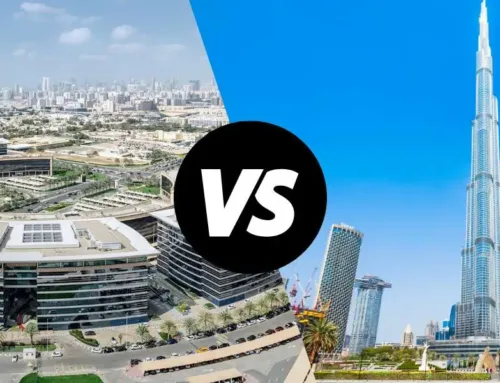Setting up a bank account for your Dubai freezone company is a crucial step for smooth business operations. Without a corporate account, it’s impossible to manage payments, receive funds from clients, pay suppliers, or run day-to-day business efficiently.
Dubai is home to a wide range of local and international banks, providing flexible options for freezone companies. However, opening a bank account for a freezone company requires understanding the process, requirements, and documentation.
In this article, we’ll guide you through everything you need to know about opening a bank account for a Dubai freezone company.
Why Do Freezone Companies Need a Bank Account?
A corporate bank account is essential for several reasons:
- Receive Payments – Accept payments from local and international clients.
- Pay Suppliers – Streamline transactions with vendors and service providers.
- Salary Payments – Facilitate salary transfers for employees.
- Business Credibility – Banks provide credibility to your company for clients and partners.
- Ease of Operations – Helps in managing VAT, accounting, and auditing compliance.
Without a bank account, a freezone company cannot operate effectively, even if it has a valid license.
Banks That Support Freezone Companies
Most Dubai banks require freezone companies to provide a valid freezone license, registration documents, and shareholder information. Popular banks include:
- Emirates NBD – One of the largest local banks with services for SMEs and freezone companies.
- Mashreq Bank – Known for fast account opening and digital banking solutions.
- HSBC UAE – International banking for global trade and cross-border transactions.
- RAKBANK – Flexible packages for small and medium-sized enterprises.
- Standard Chartered – Ideal for international e-commerce and trading companies.
Types of Accounts for Freezone Companies
- Corporate Current Account
- For everyday business transactions.
- Allows domestic and international transfers.
- Supports multiple signatories.
- Savings Account
- Suitable for holding surplus funds.
- Earns interest on deposits (varies by bank).
- Multi-Currency Account
- Ideal for businesses dealing with international clients.
- Supports USD, EUR, GBP, and other major currencies.
- Merchant Account
- Required for accepting credit card payments online.
- Essential for e-commerce businesses.
Requirements for Opening a Freezone Company Bank Account
Each bank may have slight variations, but the standard requirements include:
- Company Documents
- Freezone license
- Memorandum and Articles of Association (MOA/AOA)
- Certificate of Incorporation
- Shareholder/Director passports and UAE visas
- Business Plan and Activity Details
- Outline of company operations
- Expected monthly turnover and client base
- Types of transactions (local vs international)
- Office Lease or Flexi-Desk Proof
- Proof of your physical or virtual office within the freezone
- Board Resolution (if applicable)
- Authorizing account opening and signatories
- Bank-Specific Forms and Interviews
- Some banks require in-person interviews with company owners
- Compliance and anti-money laundering checks
Step-by-Step Process to Open a Bank Account
Step 1: Choose the Right Bank
Compare banks based on fees, digital banking options, international transfer rates, and account types.
Step 2: Prepare Required Documents
Ensure all company documents, licenses, and shareholder IDs are valid and attested if necessary.
Step 3: Submit Application
Visit the bank (or apply online if available), submit the application form along with documents.
Step 4: Attend Bank Interview
Some banks require a face-to-face meeting with shareholders to understand the business model and ensure compliance.
Step 5: Account Approval and Activation
Once approved, the bank will provide account details and debit/credit facilities. Activation may take 2–4 weeks depending on the bank.
Costs Involved
Opening a corporate account in Dubai may include:
- Account Opening Fee – AED 500 – 2,000 (varies by bank)
- Minimum Balance Requirement – AED 10,000 – 50,000 depending on bank type
- Annual Maintenance Fee – AED 500 – 2,000
- Debit/Credit Card Fees – AED 100 – 500 per card per year
Some banks waive fees for startups or e-commerce freezone companies, so it’s worth negotiating packages.
Tips for Smooth Account Opening
- Maintain Clean Documentation – Banks prioritize complete and accurate documents.
- Provide Clear Business Details – Prepare a simple business plan and expected revenue.
- Choose the Right Bank – Some banks are more friendly towards freezone companies than others.
- Opt for Multi-Currency Accounts – Especially if dealing with international clients.
- Leverage Freezone Banking Packages – Some freezones have tie-ups with banks for smoother account opening.
Frequently Asked Questions
Q1. Can I open a bank account online for my freezone company?
Yes, some banks like Emirates NBD and Mashreq allow online submissions, but most require in-person verification.
Q2. How long does it take to open a freezone company bank account?
Typically 2–4 weeks, depending on the bank and compliance checks.
Q3. Is a freezone license mandatory for a corporate account?
Yes, banks require a valid freezone license to issue a corporate account.
Q4. Can I open a multi-currency account for e-commerce?
Yes, many banks offer multi-currency accounts, which are essential for online businesses with international clients.
Final Thoughts
Opening a bank account for a Dubai freezone company is a crucial step for operational efficiency, credibility, and international business transactions. Freezone banks offer multiple options, from corporate current accounts to multi-currency accounts, catering to SMEs, startups, and e-commerce businesses.
By understanding the requirements, costs, and process, entrepreneurs can ensure a smooth account opening and focus on growing their business in Dubai’s thriving ecosystem.



